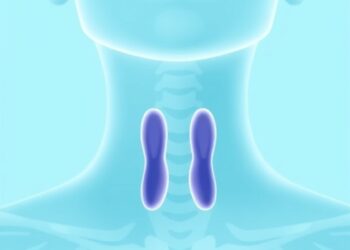The combination of alcohol plus cabin pressure at cruising altitude may threaten sleeping plane passengers’ heart health, particularly on long haul flights, suggests the first study of its kind, published online in the respiratory journal Thorax.
The combination of alcohol plus cabin pressure at cruising altitude may threaten sleeping plane passengers’ heart health, particularly on long haul flights, suggests the first study of its kind, published online in the respiratory journal Thorax.
The duo lowers the amount of oxygen in the blood (SpO2) and raises the heart rate for a protracted period, even in the young and healthy, the findings indicate.
The higher the alcohol consumption, the greater these effects might be, particularly among older passengers and those with pre-existing medical conditions, say the researchers, who suggest that it may now be time to consider restricting on-board access to alcohol on long haul flights.
Atmospheric pressure decreases exponentially with altitude, causing a drop in blood oxygen saturation level to around 90% (73 hPa) in healthy passengers at cruising altitude, explain the researchers.
A further drop in SpO2 below this threshold is defined as hypobaric hypoxia—or low blood oxygen level at higher altitude.
Alcohol relaxes blood vessel walls, increasing the heart rate during sleep, an effect similar to that of hypobaric hypoxia, so the researchers wanted to find out if the combination of alcohol plus cabin pressure at cruising altitude might have an additive effect on sleeping passengers.
They therefore randomly allocated 48 people between the ages of 18 and 40 to two groups stratified by age, gender, and weight (BMI). Half were assigned to a sleep lab under normal ambient air pressure conditions (sea level) and half to an altitude chamber that mimicked cabin pressure at cruising altitude (2438 m above sea level).
Twelve people in each group slept for 4 hours having drunk no alcohol, while 12 slept for 4 hours having drunk alcohol for 1 night, followed by 2 recovery nights, and then a further night in which the process was reversed.
Participants drank the equivalent of 2 cans of beer (5%) or 2 glasses of wine (175 ml, 12%) in pure vodka at 11.15 pm, and their sleep cycle, SpO2, and heart rate were monitored continuously until 4 am.
The final analysis included the results of 23 people in the sleep lab and 17 in the altitude chamber.
This showed that the combination of alcohol and simulated cabin pressure at cruising altitude prompted a fall in SpO2 to an average of just over 85% and a compensatory increase in heart rate to an average of nearly 88 beats/minute during sleep.
This compares with just over 88% SpO2 and just under 73 beats/minute among those sleeping in the altitude chamber who had not drunk alcohol.
Among those in the sleep lab who drank alcohol the equivalent figures were just under 95% SpO2, and just under 77 bpm heart rate and just under 96% and just under 64 bpm for those who hadn’t.
Oxygen levels below the healthy clinical norm (90%) lasted for 201 minutes with the combination of alcohol plus simulated cabin pressure at cruising altitude. This compares with a period lasting 173 minutes without alcohol and 0 minutes with and without alcohol under sleep lab conditions.
Deepest sleep (N3 stage of the sleep cycle) was reduced to 46.5 minutes under the combined exposure of alcohol and simulated cabin pressure at cruising altitude compared with both sleep lab conditions: after alcohol: 84 minutes; without alcohol 67.5 minutes.
The period of REM sleep was also shorter among those exposed to hypobaric hypoxia and alcohol. Both N3 and REM sleep are important phases of the recuperative stages of sleep.
The researchers acknowledge the small sample size of their study and that the participants were young and healthy so don’t reflect the general population.
What’s more, participants slept in the supine position, a luxury usually only afforded to those flying first class, so the findings might not equally apply to the bulk of plane passengers who fly economy, they add.
Nevertheless, they state: “Together these results indicate that, even in young and healthy individuals, the combination of alcohol intake with sleeping under hypobaric conditions poses a considerable strain on the cardiac system and might lead to exacerbation of symptoms in patients with cardiac or pulmonary diseases.”
These effects might be even greater in older people, they suggest, adding: “Cardiovascular symptoms have a prevalence of 7% of inflight medical emergencies, with cardiac arrest causing 58% of aircraft diversions.”
And they conclude: “Practitioners, passengers and crew should be informed about the potential risks, and it may be beneficial to consider altering regulations to restrict the access to alcoholic beverages on board aeroplanes.”
Journal
Thorax
Method of Research
Randomized controlled/clinical trial
Subject of Research
People
Article Title
Effects of moderate alcohol consumption and hypobaric hypoxia: implications for passengers’ sleep, oxygen saturation and heart rate on long-haul flights
Article Publication Date
3-Jun-2024
COI Statement
None declared




